When the Supreme Court delivered its landmark judgment on Tuesday recognising the transgender (TG) community as a third gender, there were celebrations all over the country.
But nowhere would they reverberate as much as in Mumbai which has been at the forefront of this struggle for equality and dignity. After all it began with a PIL filed by Gauri Sawant, 36, and Ernest Noronha (Meera) of Sakhi Charchowghi, an NGO headquartered in Mumbai that works for the TG community.
The ruling has been welcomed by not only the community but also human rights groups who are happy that the court underlined their long-standing demand for equality and integration. "We hope the government will make a start by at least enumerating us. Without that, it's convenient to simply deny our existence," said Gauri Sawant.
Arguably the most well-known face of TG rights activism, Laxmi Narayan Tripathi was busy on the phone exchanging congratulatory messages in Hijra Farsi, a language unique to the community.
"This judgment is a great step towards ending the discrimination of tens of thousands of transgenders in India, who are marginalised, exploited, ostracised, discriminated, abused, and often forced into prostitution to survive," said Tripathi, whose organisation Astitva too had filed a PIL. "In a way the highest court of the land has re-affirmed that we too are citizens and have right to dignity."
According to Tripathi, the SC two-judge bench's underlining that "recognition of TGs as a third gender isn't a social or medical issue but a human rights one", is significant. "The SC has upheld that we too are citizens of India and spoken about how the Constitution provides equal opportunity to all citizens to grow and achieve their potential, irrespective of caste, religion or gender. This should be the guiding principle for all intervention strategies being planned for the community."
The petitioners' lawyer Sanjeev Bhatnagar told dna: "This ruling will mean all identity documents, including birth certificates, passports and driving licences will have to recognise the third gender, along with male and female... The government will also have to reserve public sector jobs, seats in schools and colleges for third gender applicants."
Amid the celebrations and euphoria, Sawant struck a wary note too. "This needs to go beyond establishing our gender identity on documents. Even as we celebrate we must prepare for the battle ahead which will be more uphill." Sawant pointed out how most intervention strategies tend to focus on gays and lesbians as groups. "We have to change the myopic understanding of gender as being three watertight compartments of male, female and others. For, as long as that happens many will continue to remain marginalised and ignored."
It may be recalled that the apex court had come in for lot of criticism from human rights and LGBTQ activists when it reinstated a ban on gay sex between consenting adults, following a four-year period of decriminalisation that helped bring homosexuality out into the open. "This new ruling on transgenders should show the path to the new Parliament to repeal the anti-homosexuality law as one of its first actions," said TG equal rights actvist Amruta Shinde from Kolhapur.
In October last year Maharashtra CM Prithviraj Chavan formed a transgender welfare board in the state after the first-ever public meeting for transgenders (TG) in Mumbai. "I'm not only the CM of a privileged few, but of the entire state. And the state cannot forget people living on the margins like the TGs," he had said.
Along with creation of a special art academy for the community, Chavan had also announced the creation of special award for organisations and activists working with TGs and financial aid for those making films or plays highlighting their plight.
All those announcements and his promise that the state would look into their social security aspects in the form of voter ID cards or aadhar cards, property inheritance rights, adoption rights and the right to contest elections have remained just that.
What it means for TGs
Due to this ruling, the government will have to change the way all identity documents are created. Birth certificates, passports and driving licences will have to recognise the third gender, along with male and female. It will go a long way in enumerating community members to help with planning intervention.
What they want
No demarcation on transgenders, hijras and other groups. Apart from gender identity, community wants reservations in school/college admissions and jobs too. Negotiating this may not be easy poltically as other groups like OBCs and EBCs may resist.
![submenu-img]() This singer helped BCCI when it had no money to award 1983 World Cup-winning Indian cricket team, raised 20 lakh by...
This singer helped BCCI when it had no money to award 1983 World Cup-winning Indian cricket team, raised 20 lakh by...![submenu-img]() Virat Kohli’s new haircut ahead of RCB vs CSK IPL 2024 showdown sets internet on fire, see here
Virat Kohli’s new haircut ahead of RCB vs CSK IPL 2024 showdown sets internet on fire, see here![submenu-img]() BCCI bans Mumbai Indians skipper Hardik Pandya, slaps INR 30 lakh fine for....
BCCI bans Mumbai Indians skipper Hardik Pandya, slaps INR 30 lakh fine for....![submenu-img]() 'Justice must prevail': Former PM HD Deve Gowda breaks silence in Prajwal Revanna case
'Justice must prevail': Former PM HD Deve Gowda breaks silence in Prajwal Revanna case![submenu-img]() India urges students in Kyrgyzstan to stay indoors amid violent protests in Bishkek
India urges students in Kyrgyzstan to stay indoors amid violent protests in Bishkek![submenu-img]() Meet IIT graduates, three friends who were featured in Forbes 30 Under 30 Asia list, built AI startup, now…
Meet IIT graduates, three friends who were featured in Forbes 30 Under 30 Asia list, built AI startup, now…![submenu-img]() Meet woman who cracked UPSC in fourth attempt to become IAS officer, secured AIR...
Meet woman who cracked UPSC in fourth attempt to become IAS officer, secured AIR...![submenu-img]() Meet IIT JEE 2024 all-India girls topper who scored 100 percentile; her rank is…
Meet IIT JEE 2024 all-India girls topper who scored 100 percentile; her rank is…![submenu-img]() Meet PhD wife of IIT graduate hired at Rs 100 crore salary package, was fired within a year, he is now…
Meet PhD wife of IIT graduate hired at Rs 100 crore salary package, was fired within a year, he is now…![submenu-img]() Meet woman not from IIT, IIM or NIT, cracked UPSC exam in first attempt with AIR...
Meet woman not from IIT, IIM or NIT, cracked UPSC exam in first attempt with AIR...![submenu-img]() DNA Verified: Is CAA an anti-Muslim law? Centre terms news report as 'misleading'
DNA Verified: Is CAA an anti-Muslim law? Centre terms news report as 'misleading'![submenu-img]() DNA Verified: Lok Sabha Elections 2024 to be held on April 19? Know truth behind viral message
DNA Verified: Lok Sabha Elections 2024 to be held on April 19? Know truth behind viral message![submenu-img]() DNA Verified: Modi govt giving students free laptops under 'One Student One Laptop' scheme? Know truth here
DNA Verified: Modi govt giving students free laptops under 'One Student One Laptop' scheme? Know truth here![submenu-img]() DNA Verified: Shah Rukh Khan denies reports of his role in release of India's naval officers from Qatar
DNA Verified: Shah Rukh Khan denies reports of his role in release of India's naval officers from Qatar![submenu-img]() DNA Verified: Is govt providing Rs 1.6 lakh benefit to girls under PM Ladli Laxmi Yojana? Know truth
DNA Verified: Is govt providing Rs 1.6 lakh benefit to girls under PM Ladli Laxmi Yojana? Know truth![submenu-img]() Kiara Advani stuns in Prabal Gurung thigh-high slit gown for her Cannes debut, poses by the French Riviera
Kiara Advani stuns in Prabal Gurung thigh-high slit gown for her Cannes debut, poses by the French Riviera![submenu-img]() Heeramandi star Taha Shah Badussha makes dashing debut at Cannes Film Festival, fans call him ‘international crush’
Heeramandi star Taha Shah Badussha makes dashing debut at Cannes Film Festival, fans call him ‘international crush’![submenu-img]() Streaming This Week: Madgaon Express, Zara Hatke Zara Bachke, Bridgerton season 3, latest OTT releases to binge-watch
Streaming This Week: Madgaon Express, Zara Hatke Zara Bachke, Bridgerton season 3, latest OTT releases to binge-watch![submenu-img]() Sunanda Sharma exudes royalty as she debuts at Cannes Film Festival in anarkali, calls it ‘Punjabi community's victory’
Sunanda Sharma exudes royalty as she debuts at Cannes Film Festival in anarkali, calls it ‘Punjabi community's victory’![submenu-img]() Aishwarya Rai walks Cannes red carpet in bizarre gown made of confetti, fans say 'is this the Met Gala'
Aishwarya Rai walks Cannes red carpet in bizarre gown made of confetti, fans say 'is this the Met Gala'![submenu-img]() Haryana Political Crisis: Will 3 independent MLAs support withdrawal impact the present Nayab Saini led-BJP government?
Haryana Political Crisis: Will 3 independent MLAs support withdrawal impact the present Nayab Saini led-BJP government?![submenu-img]() DNA Explainer: Why Harvey Weinstein's rape conviction was overturned, will beleaguered Hollywood mogul get out of jail?
DNA Explainer: Why Harvey Weinstein's rape conviction was overturned, will beleaguered Hollywood mogul get out of jail?![submenu-img]() What is inheritance tax?
What is inheritance tax?![submenu-img]() DNA Explainer: What is cloud seeding which is blamed for wreaking havoc in Dubai?
DNA Explainer: What is cloud seeding which is blamed for wreaking havoc in Dubai?![submenu-img]() DNA Explainer: What is Israel's Arrow-3 defence system used to intercept Iran's missile attack?
DNA Explainer: What is Israel's Arrow-3 defence system used to intercept Iran's missile attack?![submenu-img]() This singer helped BCCI when it had no money to award 1983 World Cup-winning Indian cricket team, raised 20 lakh by...
This singer helped BCCI when it had no money to award 1983 World Cup-winning Indian cricket team, raised 20 lakh by...![submenu-img]() This film had 3 superstars, was unofficial remake of Hollywood classic, was box office flop, later became hit on...
This film had 3 superstars, was unofficial remake of Hollywood classic, was box office flop, later became hit on...![submenu-img]() Meet Nancy Tyagi, Indian influencer who wore self-stitched gown weighing over 20 kg to Cannes red carpet
Meet Nancy Tyagi, Indian influencer who wore self-stitched gown weighing over 20 kg to Cannes red carpet![submenu-img]() Telugu actor Chandrakanth found dead days after rumoured girlfriend Pavithra Jayaram's death in car accident
Telugu actor Chandrakanth found dead days after rumoured girlfriend Pavithra Jayaram's death in car accident![submenu-img]() Meet superstar who faced casting couch at young age, worked in B-grade films, was once highest-paid actress, now..
Meet superstar who faced casting couch at young age, worked in B-grade films, was once highest-paid actress, now..![submenu-img]() Viral video: Flood-rescued dog comforts stranded pooch with heartfelt hug, internet hearts it
Viral video: Flood-rescued dog comforts stranded pooch with heartfelt hug, internet hearts it![submenu-img]() Dubai ruler captured walking hand-in-hand with grandson in viral video, internet can't help but go aww
Dubai ruler captured walking hand-in-hand with grandson in viral video, internet can't help but go aww![submenu-img]() IPL 2024: Virat Kohli drops massive hint on MS Dhoni’s retirement plan ahead of RCB vs CSK clash
IPL 2024: Virat Kohli drops massive hint on MS Dhoni’s retirement plan ahead of RCB vs CSK clash![submenu-img]() Do you know which God Parsis worship? Find out here
Do you know which God Parsis worship? Find out here![submenu-img]() This white marble structure in Agra, competing with Taj Mahal, took 104 years to complete
This white marble structure in Agra, competing with Taj Mahal, took 104 years to complete
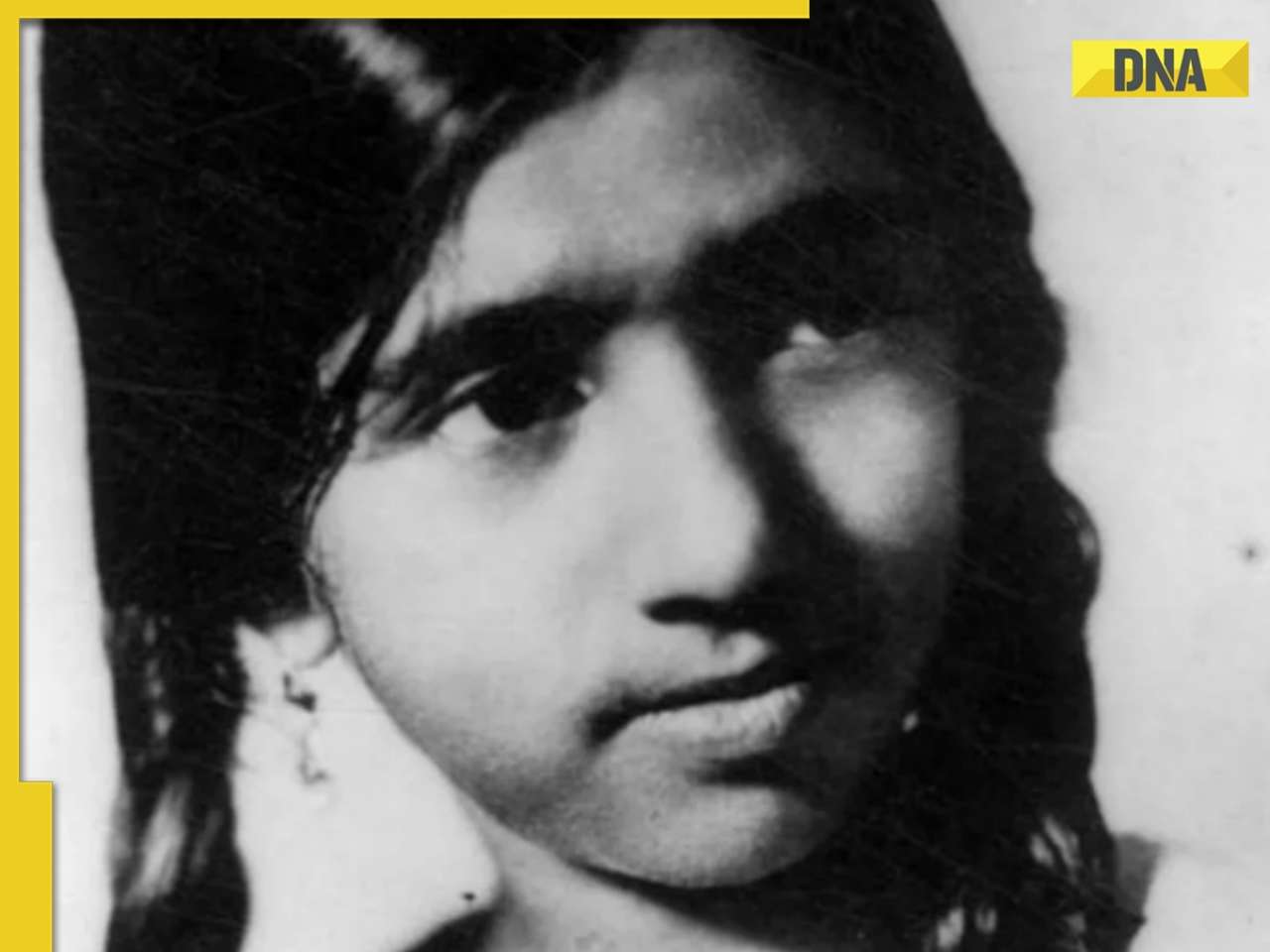
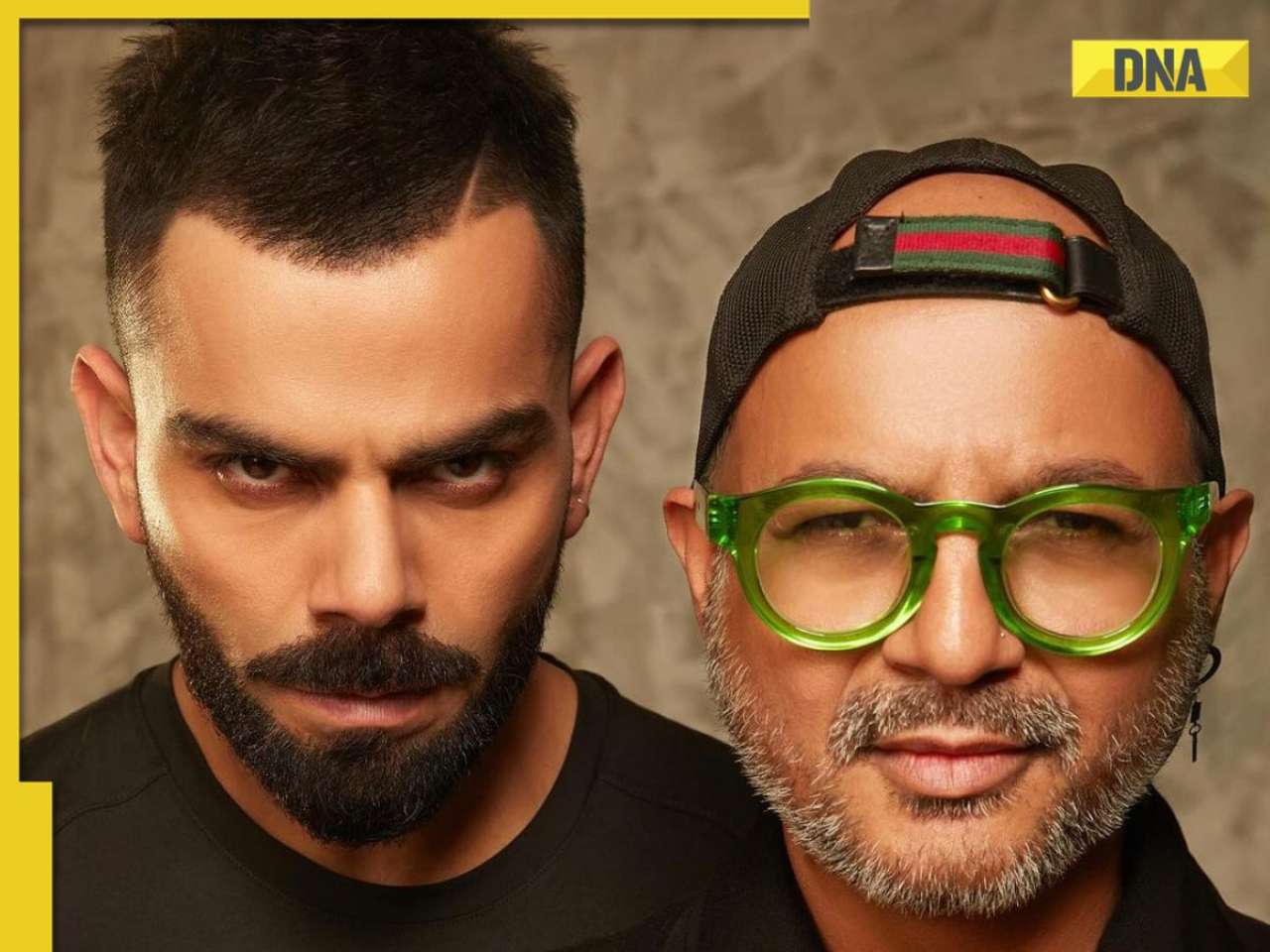
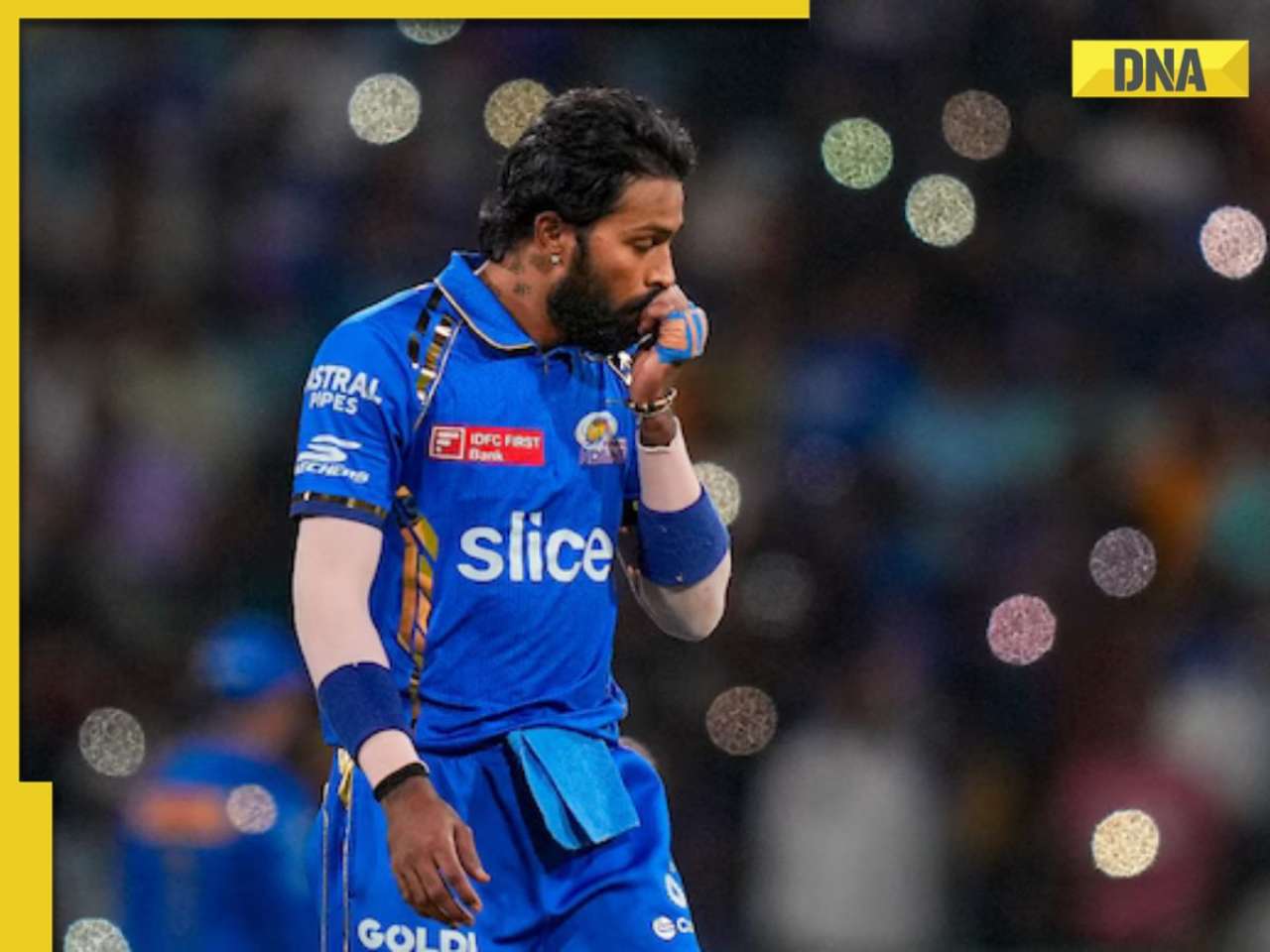
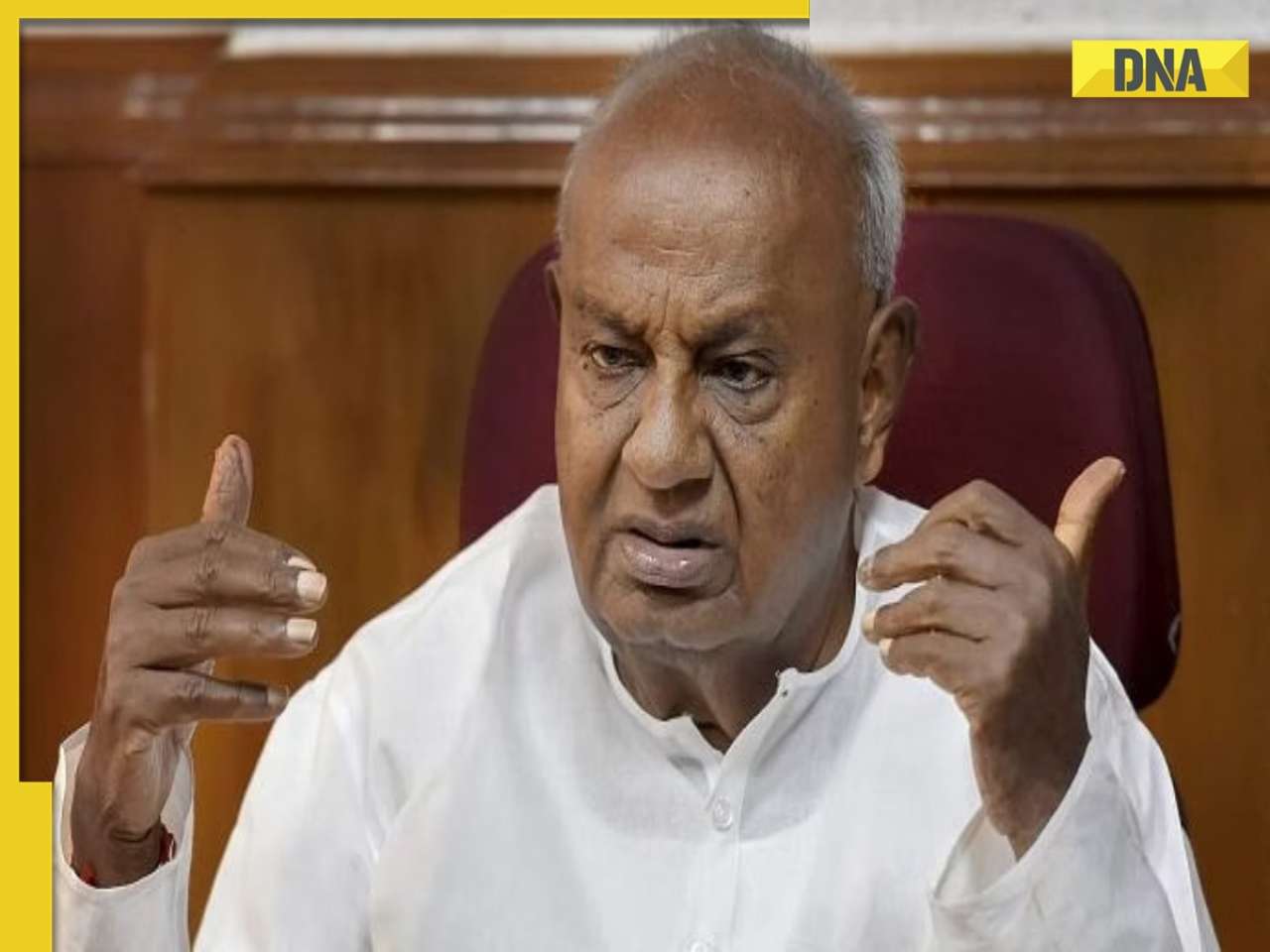
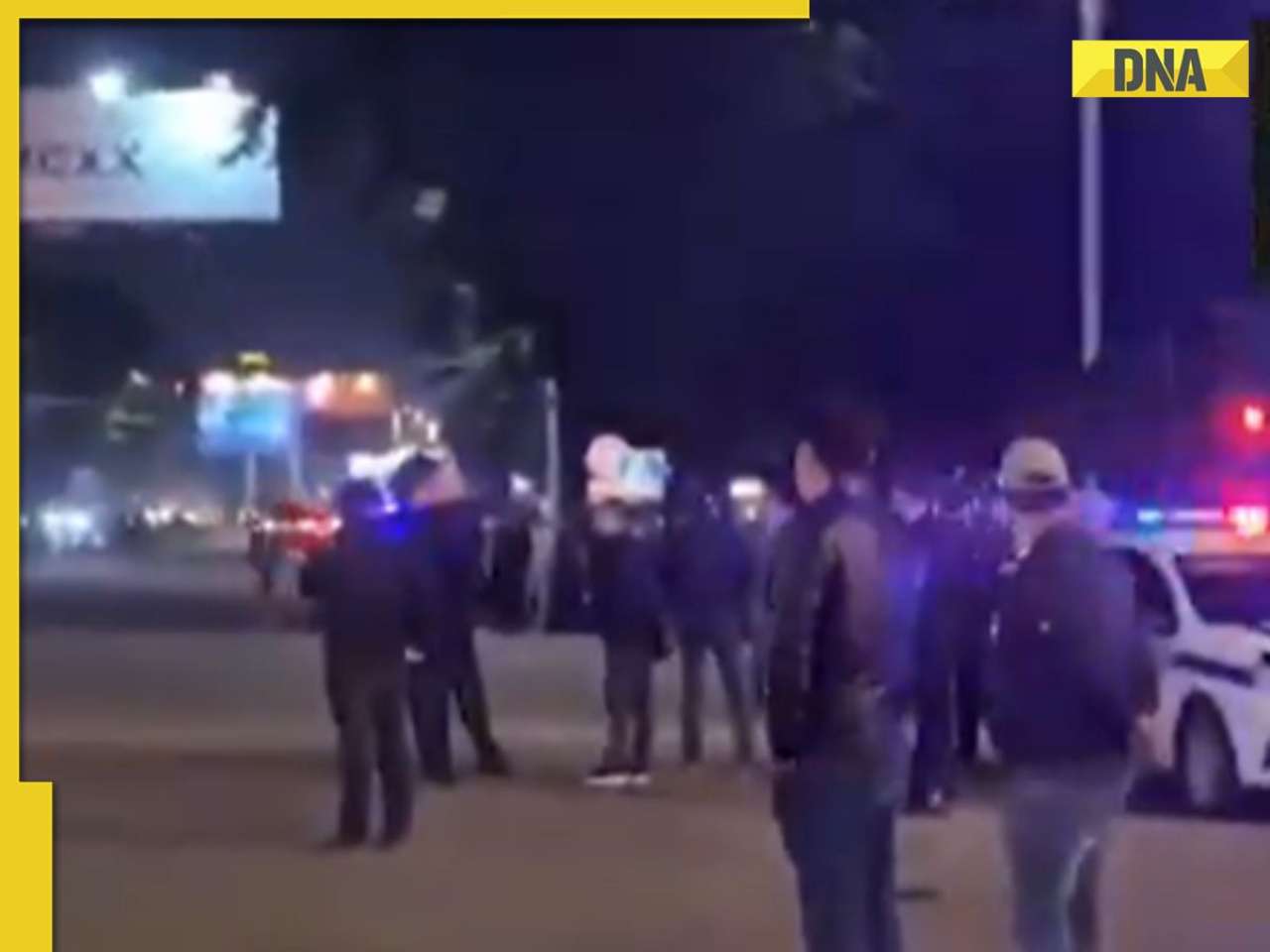



























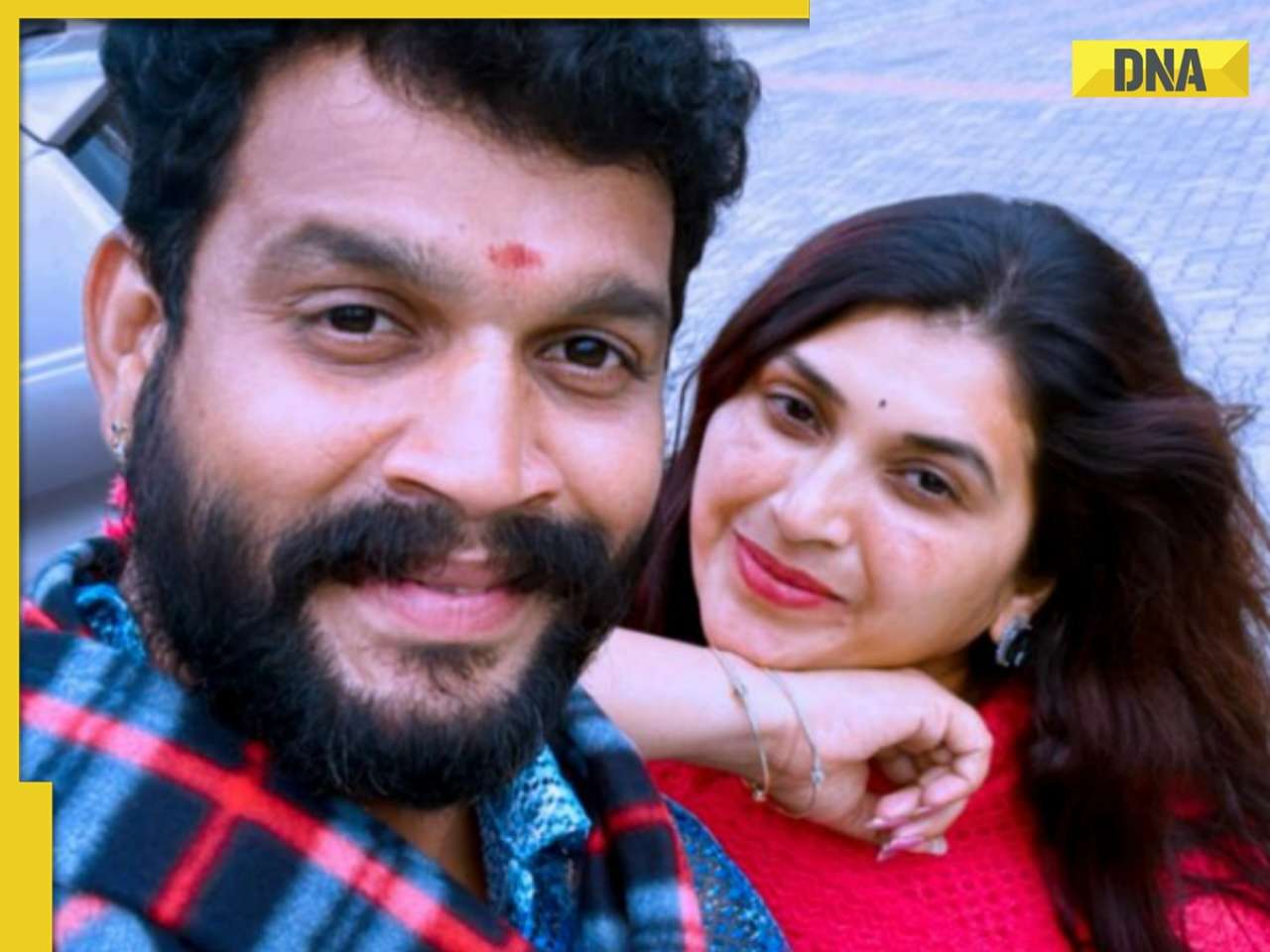


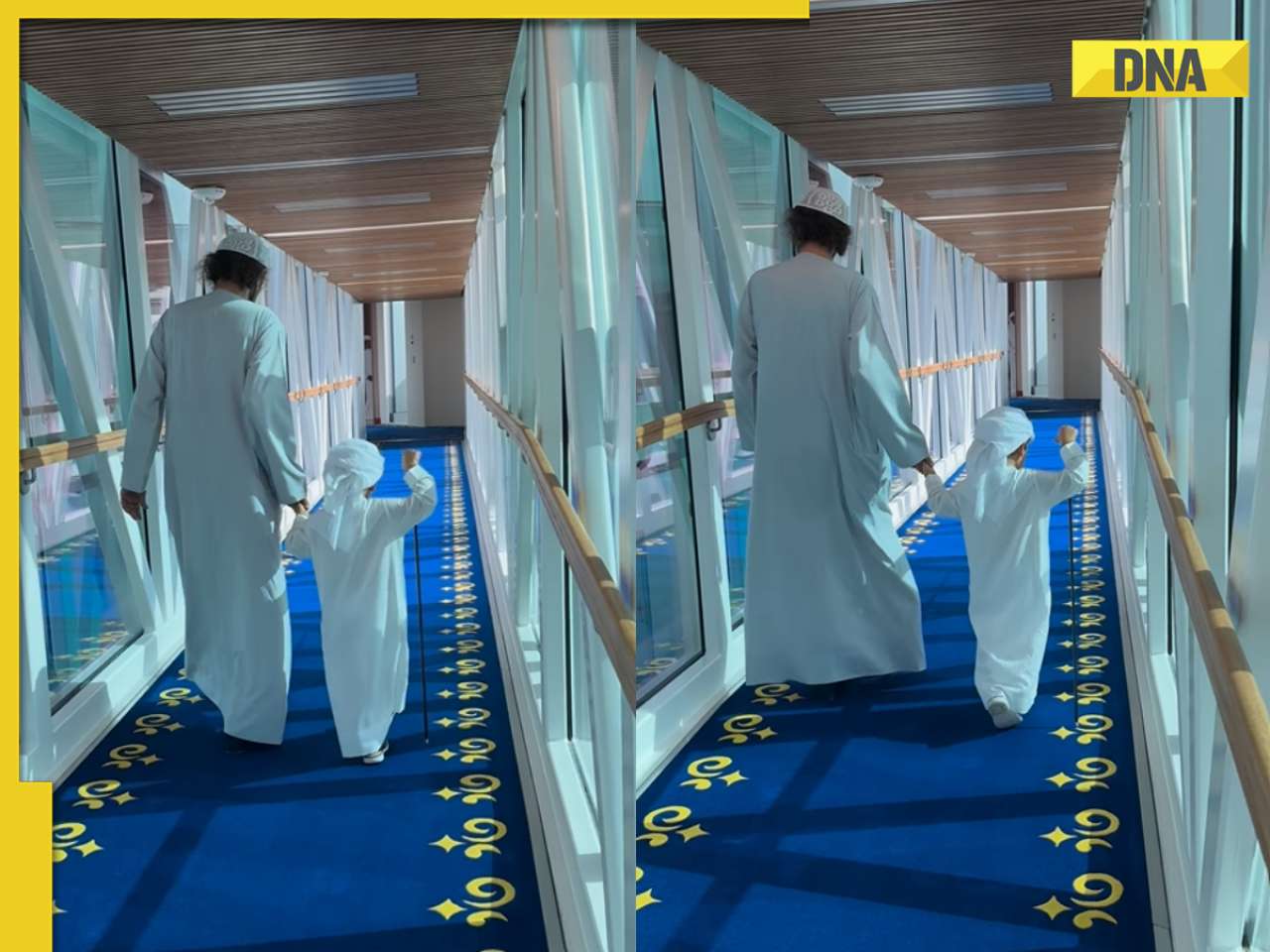
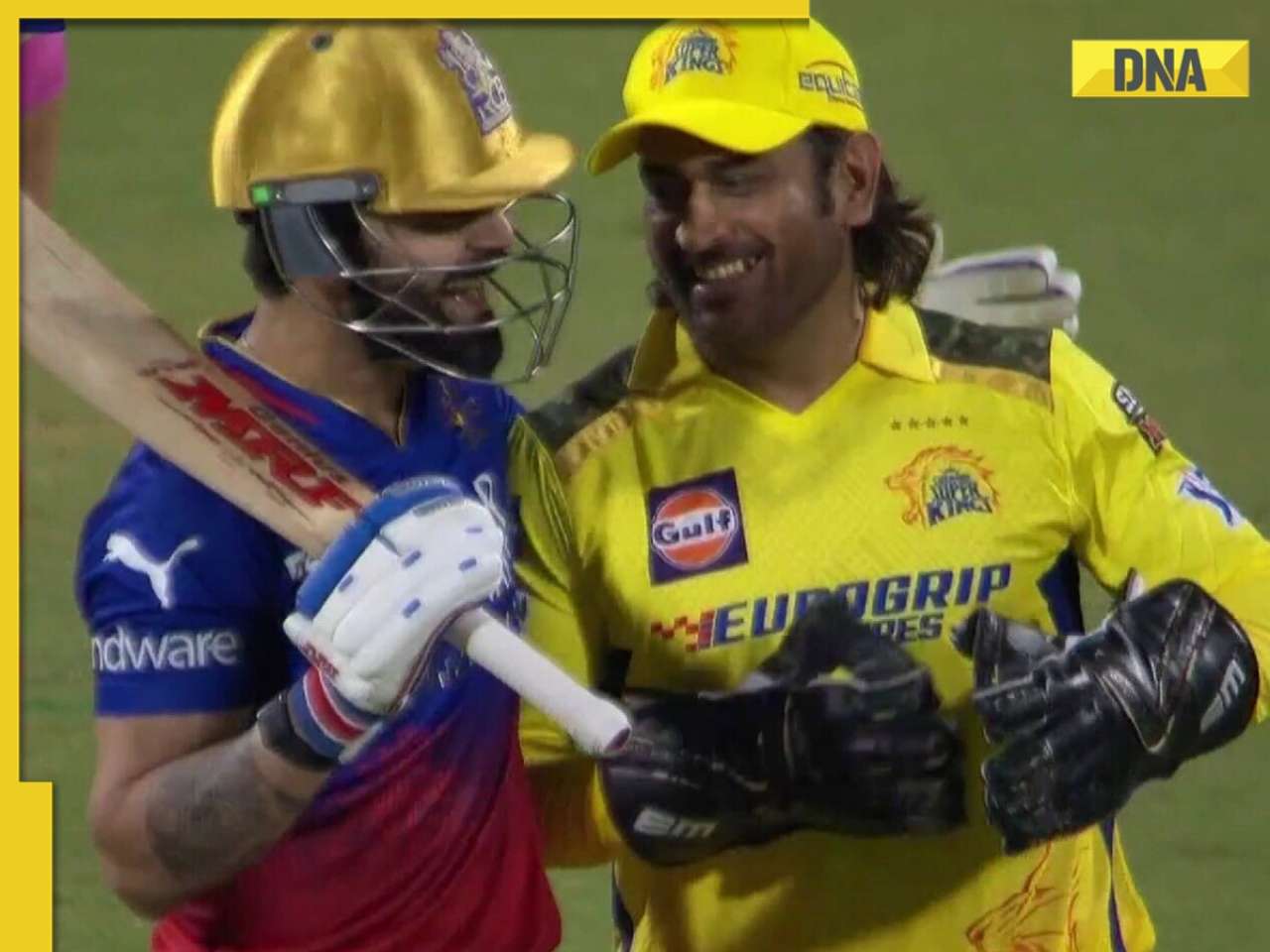



)
















)
)
)
)
)
)